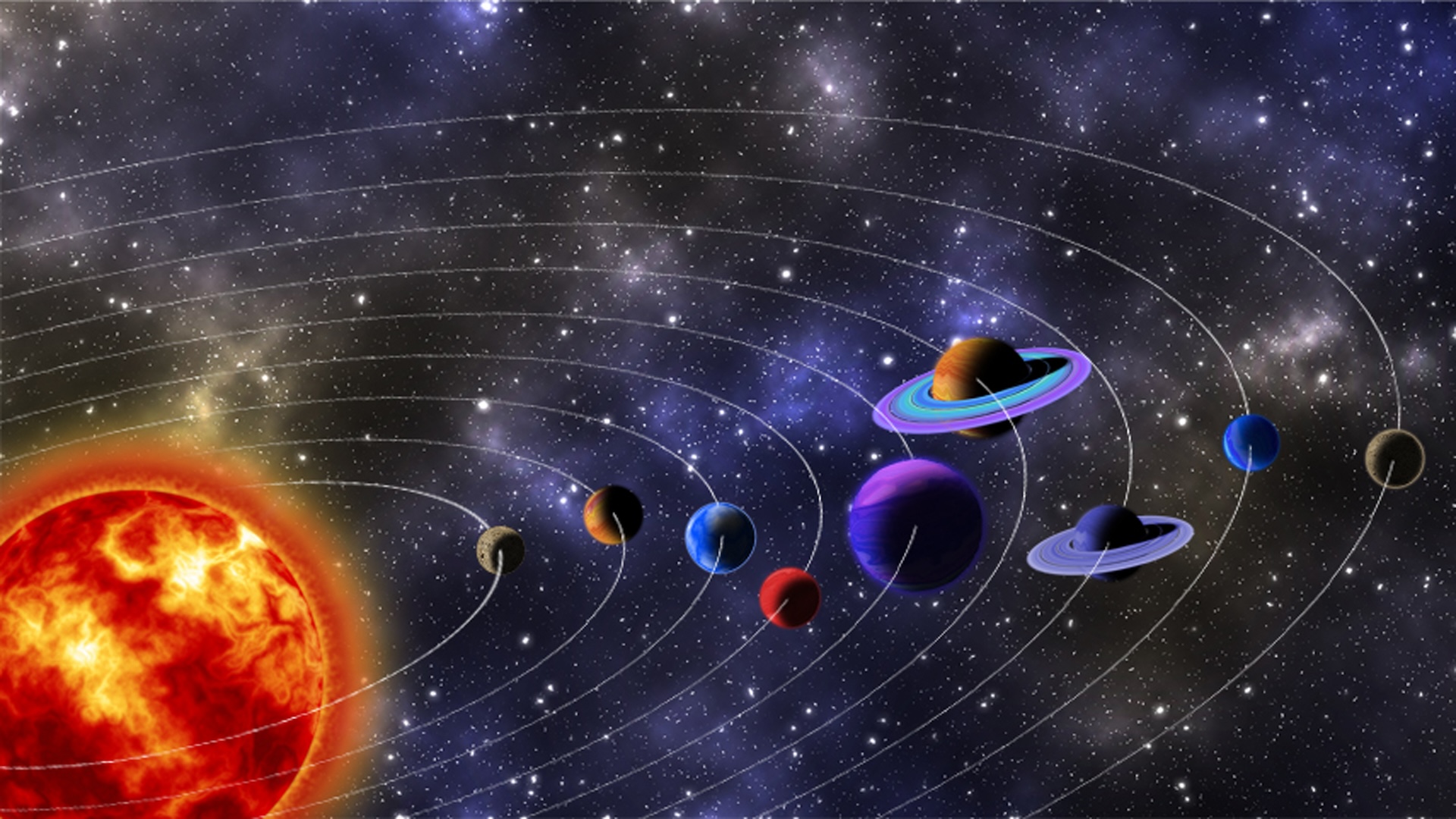Why is everything in space always moving?
From the moment of the Big Bang, everything in the universe has kept moving, but why is that?

Nothing in our universe stands still: Earth orbits the sun, the sun circles the galaxy, and even galaxies are constantly on the move. So why is everything in space in motion?
It all comes down to how the universe and the objects within it were made, Edward Gomez, an astrophysicist and the education director at Las Cumbres Observatory, told Live Science. Scientists think the universe began with the Big Bang, a superfast expansion from an infinitely dense single point that eventually led to the formation of everything we see today.
"From the very beginning of the universe, it started expanding outwards because the force of the Big Bang caused everything to move apart," Gomez said.
"It's sort of the imprint of the beginning," said Carol Christian, an astrophysicist and outreach project scientist for the Hubble Space Telescope at the Space Telescope Science Institute in Baltimore. "The beginning was movement, and so movement has been built into the universe from the very beginning."
Related: Does the universe rotate?
So one reason everything in space is in motion is because the universe is expanding. But that expansion has effects only on very large scales. "We only see it really happening on things that are very far apart or far away, because it's not necessarily that these objects are moving through space," Gomez said. "It's that the space in between objects is getting bigger."
On smaller scales, though, rotation is the movement that rules objects in space. "This spinning thing is kind of endemic in the universe, too," Christian told Live Science. "There isn't anything that doesn't rotate."
Get the world’s most fascinating discoveries delivered straight to your inbox.
That's due to angular momentum: When two objects in space move close together, their mutual gravity pulls them toward each other, and if they don't collide or fly in different directions, they tend to orbit each other. This phenomenon affects everything, from the smallest mineral grains to the largest galaxies.
"The solar system was made like a pizza is made … If you're making an Italian pizza, you throw the pizza dough up, and as you spin it, it flattens out into a disc," Gomez said. "And that's fundamentally how our solar system is made: This thing called angular momentum, that spinning effect stretches things out into a disc."
That's why the planets in the solar system orbit the sun: The solar system began as a spinning mass of gas and dust that eventually coalesced into a star and planets. Along the way, angular momentum ensured it never stopped spinning.
But a galaxy's spinning effect happens differently than you'd expect from just the stuff we can see.
"It spins as if it were like a pizza base, as if it was solid instead of being made up of individual components, stars," Gomez said. "It should be that the [stars] further out should be going slower than the ones in the center. But actually, you don't see that … and that's one of the first indicators that the universe had something crazy that you can't see that we now call dark matter."
Dark matter doesn't interact with light, so we can't see it with telescopes. However, it does have mass and interacts with other objects that have mass through gravitational effects. Dark matter also experiences angular momentum. It's another reason everything in space is moving.
In the end, motion is a fundamental ingredient in the universe. It "shows that the universe is alive — not in a sense of being conscious, but you know, things are happening — chemical reactions, physical reactions are happening, and that requires energy," Gomez said. "And the most basic form of energy is motion."

Ashley Hamer is a contributing writer for Live Science who has written about everything from space and quantum physics to health and psychology. She's the host of the podcast Taboo Science and the former host of Curiosity Daily from Discovery. She has also written for the YouTube channels SciShow and It's Okay to Be Smart. With a master's degree in jazz saxophone from the University of North Texas, Ashley has an unconventional background that gives her science writing a unique perspective and an outsider's point of view.



